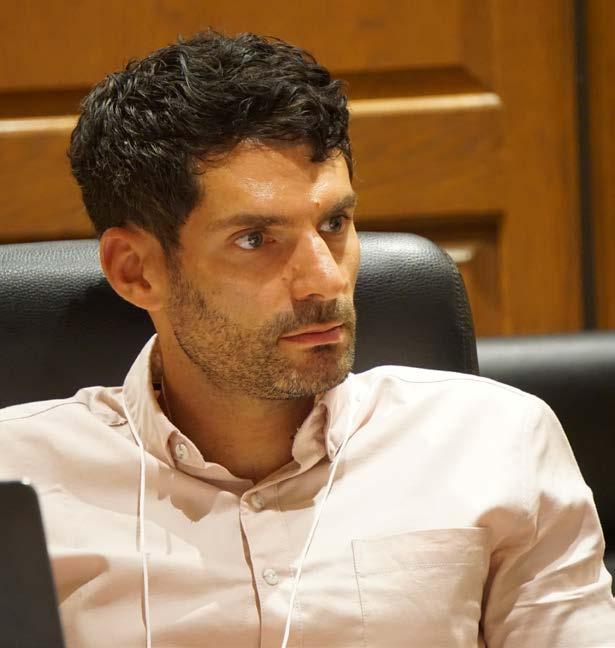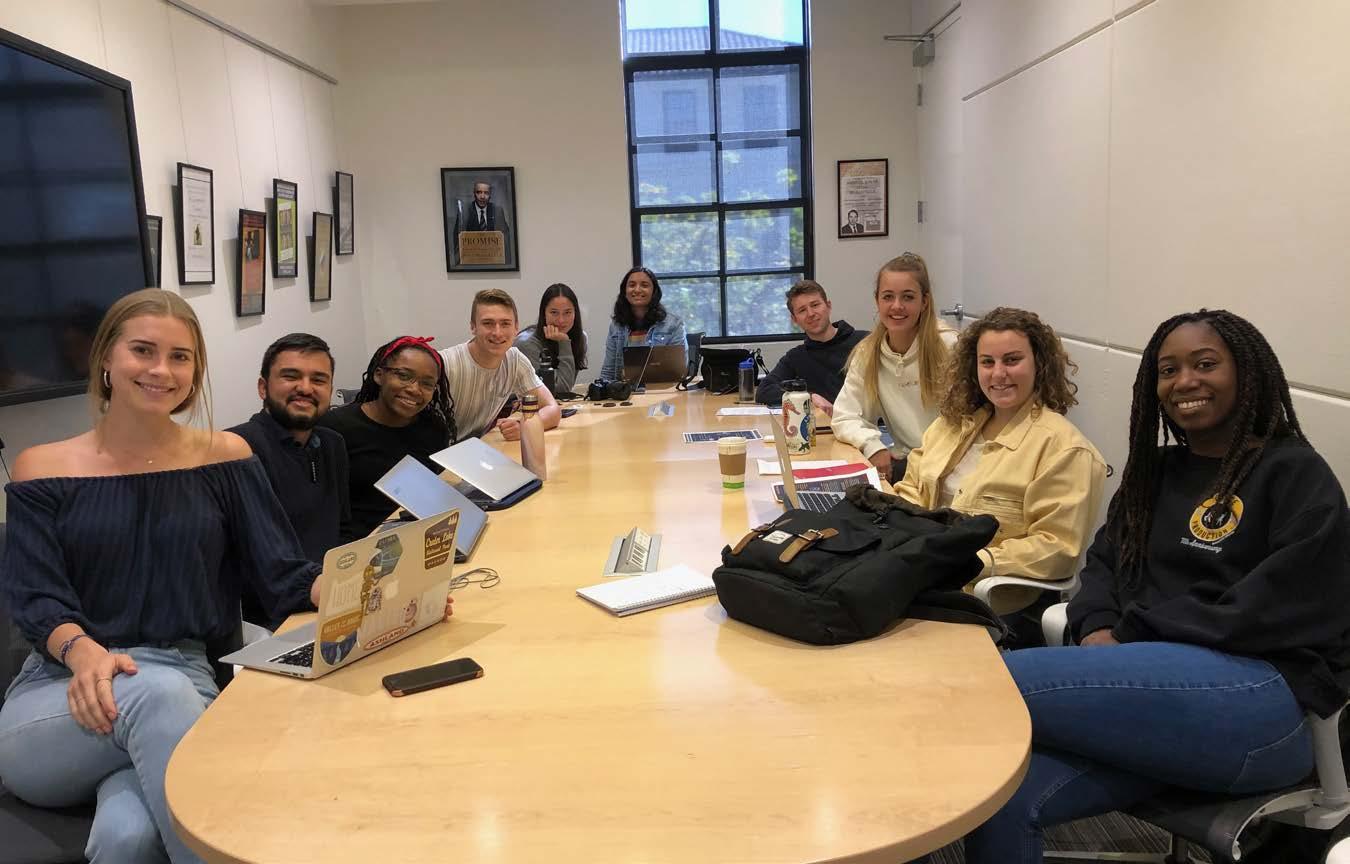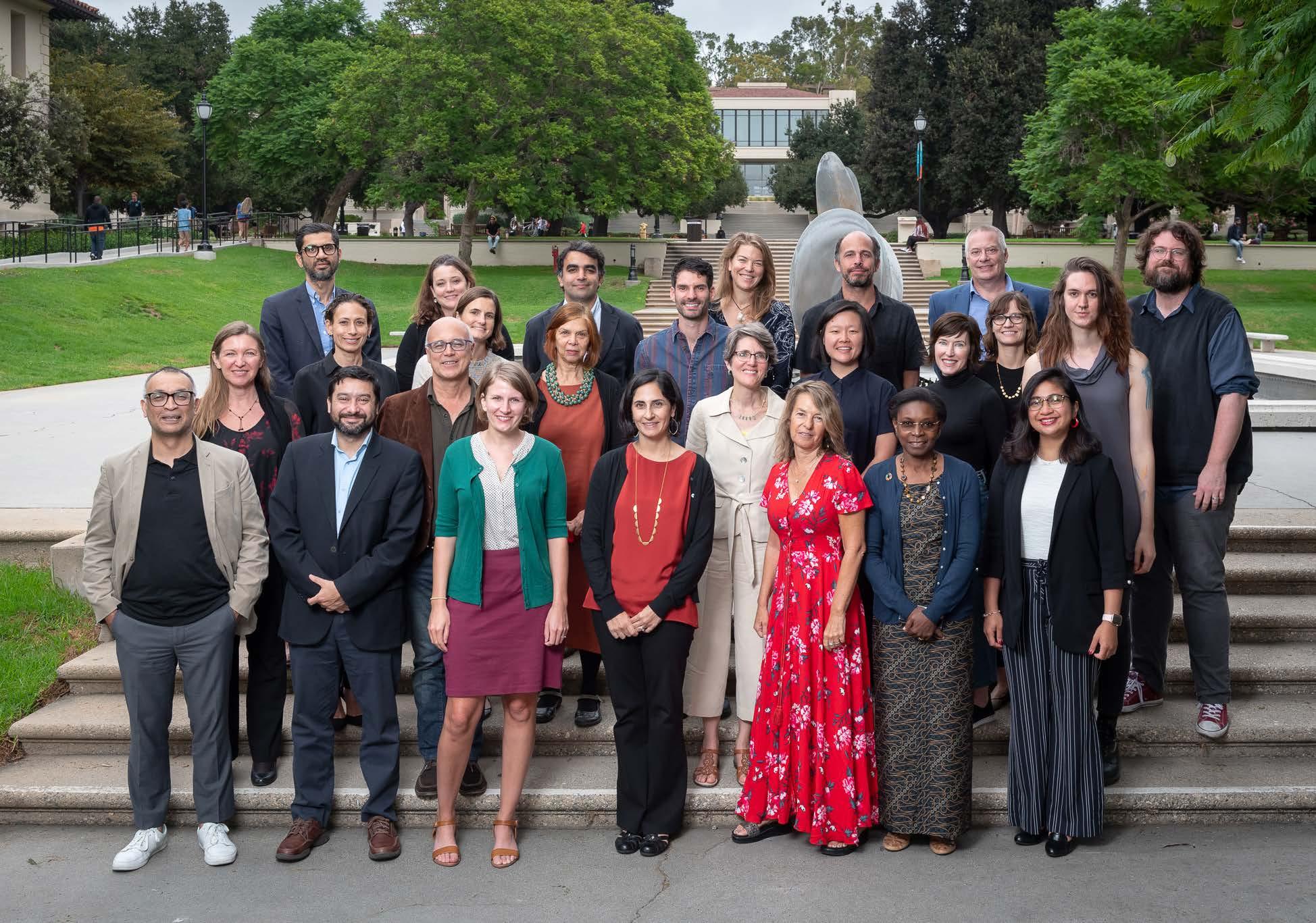
6 minute read
Faculty Research
A review of faculty research enabled by Young Initiative support during the 2019-20 academic year.
Phillip Ayoub
The Young Initiative supported Associate Professor Phillip Ayoub’s teaching, research, and professional activities in 2019-20 in a number of ways, including funding the research support of two student assistants to assist with several ongoing research projects on LGBT rights in Europe and the United States, as well as a pedagogical piece on research design. It also partially supported Ayoub’s participation and research talks at the University of Amsterdam and Humboldt University, as well as work editing a special issue on gender policy during the Angela Merkel era. Unfortunately, five other talks and conferences were canceled due to the COVID-19 pandemic. In addition to research activities, the Young Initiative provided funds for guest speakers and course materials relevant to the teaching of Ayoub’s courses on international relations, LGBTQIA+ rights, global social movements, and comparative European politics.
Madeline Baer
The John Parke Young Initiative on the Global Political Economy supported Associate Professor Madeline Baer’s research and teaching in a multitude of ways during the 2019-20 academic year. Young Initiative funds provided research materials to help her complete a chapter titled “The Human Right to Water” in Human Rights: Politics and Practice, a textbook published by Oxford University Press.
Baer planned to use Young Initiative funds to present several papers at international conferences and workshops during the spring and summer of 2020. These papers are part of her ongoing research agenda on human rights-based approaches to development, the politics of water provision in urban centers, and changes in international law on economic and social human rights. Her paper, “Contesting Rights: Champions and Challengers of Economic, Social, and Cultural Rights,” was accepted for presentation at the International Studies Association annual meeting. Another paper, “State Foreign Policy and Socioeconomic Rights,” was accepted to the Joint Human Rights Conference hosted by the University of London’s Human Rights Consortium.
Baer was invited by the Graduate Institute of International and Development Studies in Geneva, Switzerland to participate in an authors’ workshop for a special issue of the European Journal of International Law. While in Geneva, Baer planned to use Young Initiative funds to conduct field research for her book project on the champions and challengers of socioeconomic human rights. This book manuscript analyzes states’ foreign policy on socioeconomic rights including the rights to food, water, education, health, and housing.
The Young Initiative also provided funds for teaching materials and a number of guest speakers for Baer’s courses on global political economy, water policy, and human rights in Latin America.
Lan Chu
This past academic year, the Young Initiative supported Associate Professor Lan Chu’s continued research on the Catholic Church’s role in international relations. Funding from the Young Initiative allowed her to hire a research assistant, who helped her gather materials on the Church’s efforts to improve the conditions of migrants and refugees, specifically at the U.S.-Mexico border. She then presented a portion of this project at the 2020 Western Political Science Association’s annual conference, held online. Her focus this year on refugees and migration builds upon last year’s focus on the Catholic Church’s stance on climate change and environmental policy. Both issue areas fit into her broader research agenda, which is meant to identify the Catholic Church’s foreign policy and further clarify its political position within the international community.
Juve Cortés
The Young Initiative supported Juve J. Cortés in various ways during his second year as an assistant professor. On the research end, Cortés undertook field research in the Patzcuaro region of Mexico for a project which looks at the history and contemporary role of the Purepecha people. The Young Initiative also helped continue several research projects— including several based in Los Angeles—which look at how a global political economy affects marginalized communities. With Young support, Cortés also attended a meeting of the American Political Science Association; the fund also helped with membership to various scholarly associations. Important for Cortés was to incorporate students in his research, which he continues to do in several ways. On the teaching end, Cortés invited several speakers to his classes and organized a college-wide film viewing event with director Michelle E. Aguilar.
Sophal Ear
The Young Initiative’s faculty funding allowed Associate Professor Sophal Ear to update with Coronavirus (COVID-19) material his third book manuscript, Viral Sovereignty and the Political Economy of Pandemics: What Explains How Countries Handle Outbreaks? The book argues that improving disease surveillance will require advancing more basic healthcare concerns in the developing world and that rich countries cannot simply force, through technology, demands on resource-poor countries.
Thanks to the Young Initiative, Ear has been able to travel the United States and the world to share his research at the State Department, the Rockefeller Center in Bellagio, Italy, and numerous other venues to help policymakers and change leaders. While the focus has typically been on China’s influence in countries like Cambodia, on which Ear is a global expert, topics have also included how to end orphanages worldwide and deinstitutionalize child care towards family-centered care.
Finally, Ear has been able to increase the scope of his engagement with the National Association of Corporate Directors by becoming a member of NACD with the support of the Young Initiative, becoming an NACD Governance Fellow and an NACD Certified Director in 2020 by taking the inaugural examination in 2019. This has meant advocating for a double-bottom-line: not just profit maximization or shareholder value, but for all stakeholders, such as labor and the environment, and improving standards for all. In that same spirit, in August 2019, the Business Roundtable redefined the purpose of a corporation from shareholder primacy to promote “an economy that serves all Americans.”
Laura Hebert
Hebert’s teaching, research, and professional activities were once again substantially supported by the Young Initiative during the 2019-20 academic year. The Young Initiative provided funds for annual memberships to the American Political Science Association and International Studies Association, and the purchase of computer technology, software, and office supplies necessary for her teaching and research. It supported the purchase of books, films, and other materials related to her courses and the writing of her book manuscript, Gender and Human Rights in a Global, Mobile Era. Most importantly, it allowed for the hiring of two students to conduct research for the conclusion of the book project, specifically involving the documentation of funding allocations by the U.S. government and European Union members for anti-trafficking interventions.
Movindri Reddy
Governor Newsom announced the shelter-in-place order for California on March 19—smack in the middle of Professor Movindri Reddy’s sabbatical. Having returned from fieldwork in southern Africa in January and preparing for two international trips for spring 2020, Reddy had to rework her research agenda quickly.
At the International Studies Association annual convention in Hawaii in March, Reddy was to present a paper titled “Shadow States, Ungovernable Spaces, and Shatter Zones: Will States Persist in Southern Africa.” While the article was written, the conference was canceled. The World Indian Diaspora Conference 2020, scheduled in Trinidad at the end of May, was also canceled. The paper for this conference titled “India’s Political Influence in South Africa” focused on “state capture” by President Jacob Zuma and his cadre of supporters. Key players in these moves included the Gupta brothers who immigrated to the country after the democratic transition in the early 1990s.
Needless to say, the pandemic derailed a potentially research-intensive sabbatical; however, Reddy continued to work on her book manuscript and is transforming the conference papers into publishable journal articles.









